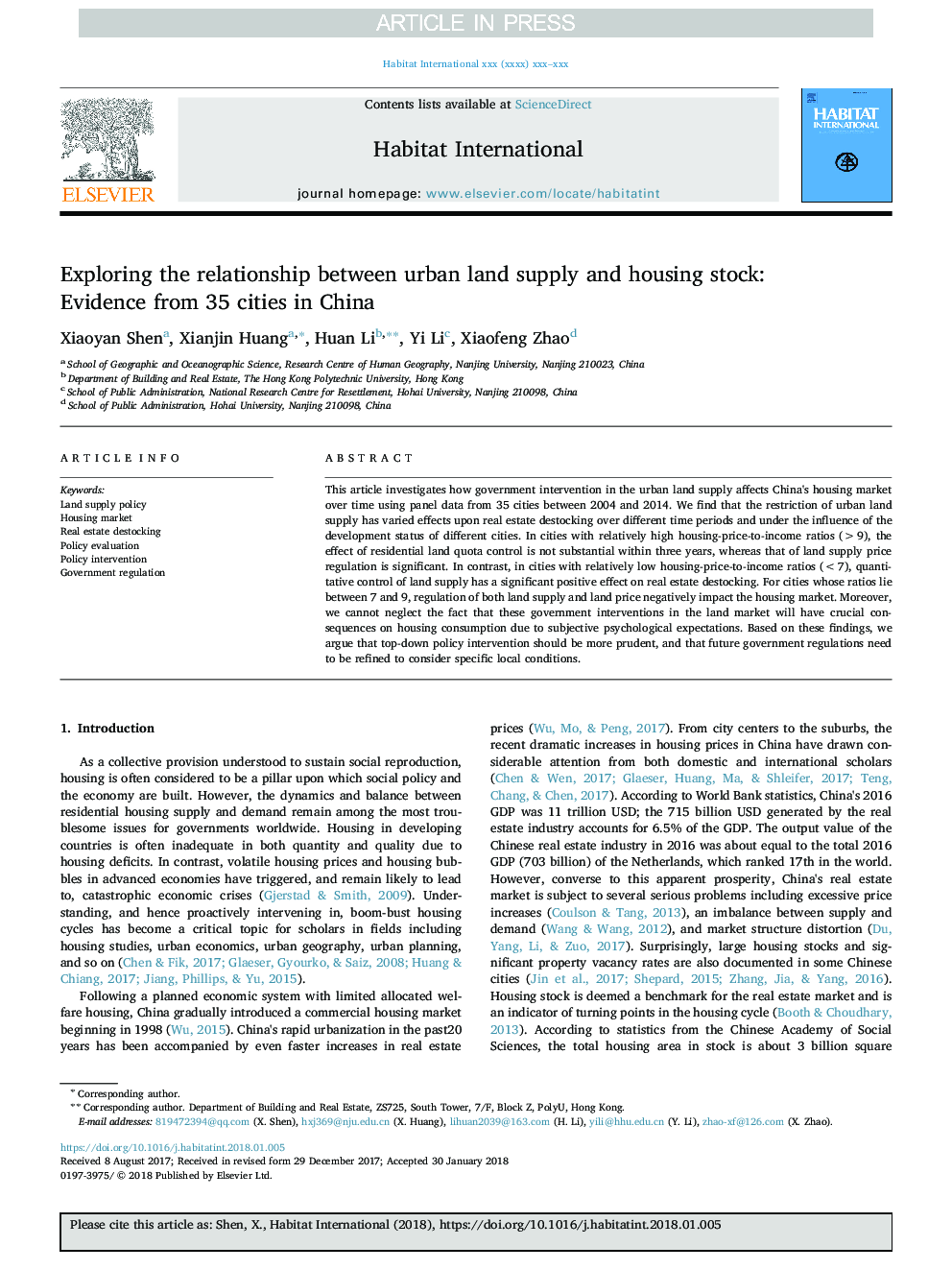| Article ID | Journal | Published Year | Pages | File Type |
|---|---|---|---|---|
| 7454987 | Habitat International | 2018 | 10 Pages |
Abstract
This article investigates how government intervention in the urban land supply affects China's housing market over time using panel data from 35 cities between 2004 and 2014. We find that the restriction of urban land supply has varied effects upon real estate destocking over different time periods and under the influence of the development status of different cities. In cities with relatively high housing-price-to-income ratios (>9), the effect of residential land quota control is not substantial within three years, whereas that of land supply price regulation is significant. In contrast, in cities with relatively low housing-price-to-income ratios (<7), quantitative control of land supply has a significant positive effect on real estate destocking. For cities whose ratios lie between 7 and 9, regulation of both land supply and land price negatively impact the housing market. Moreover, we cannot neglect the fact that these government interventions in the land market will have crucial consequences on housing consumption due to subjective psychological expectations. Based on these findings, we argue that top-down policy intervention should be more prudent, and that future government regulations need to be refined to consider specific local conditions.
Related Topics
Social Sciences and Humanities
Social Sciences
Development
Authors
Xiaoyan Shen, Xianjin Huang, Huan Li, Yi Li, Xiaofeng Zhao,
